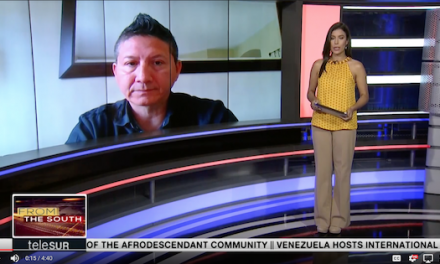Harper must come clean about the security and prosperity partnership
PRESS STATEMENT
FOR IMMEDIATE RELEASE
March 27th, 2006 – One year after the launch of the Security and Prosperity Partnership of North
American (SPP), the respective leaders of Canada, the United States and Mexico are about to meet
again, this time in Cancun (Mexico), to advance the ongoing integration of North America. Meanwhile,
citizens and elected officials are still being kept in the dark about the process.
The pact signed in Waco last year by Paul Martin, George Bush and Vicente Fox, contains no concrete
proposals to improve the lives of the continent’s ordinary citizens. The agreement stems from the big
business agenda and represents a giant step toward full continental integration.
The SPP initiative is intended to harmonize many Canadian and Mexican domestic and foreign policies
with those of the U.S. Under the guise of protecting citizens from the threat of terrorism and also
facilitating trade, this initiative would involve drastic measures such as a deeper integration of North
American energy markets, harmonized treatment of immigrants, refugees or tourists from abroad, and
the creation of common security policies. It also promotes steps towards harmonized standards in
areas governing health, food safety and the environment.
Sold to the public as merely administrative and regulatory in nature, the SPP agenda is evolving away
from the public eye. Tellingly, 15 top CEOs have been invited to join the leader’s summit in Cancun.
“The presumptions of the business-led agenda are clear in the wording describing the SPP process
where private sector leaders can get high-level meetings, other stakeholders get round table
consultations, while the democratic representatives of the citizens only get briefings,” said John Foster
of Common Frontiers.
According to Pierre-Yves Serinet, coordinator of the Réseau Québécois sur l’Intégration Continentale
(RQIC), the SPP would not survive public scrutiny in any of the three countries. “If Stephen Harper
truly believes in transparency and accountability, he has the responsibility of putting the SPP before
parliament and the Canadian public. Otherwise, he should not proceed with this agenda.”
Common Frontiers, RQIC, the Mexican Action Network on Free Trade (RMALC), and the Alliance for
Responsible Trade (ART-USA) are all members of the Hemispheric Social Alliance, a network that has
played a central role in opposing ‘free trade’ negotiations throughout the Americas. The four North
American coalitions are representative of a range of organizations including church groups, labour,
student unions, women’s groups, environmental organizations, international development agencies,
human rights and other social justice advocates.



